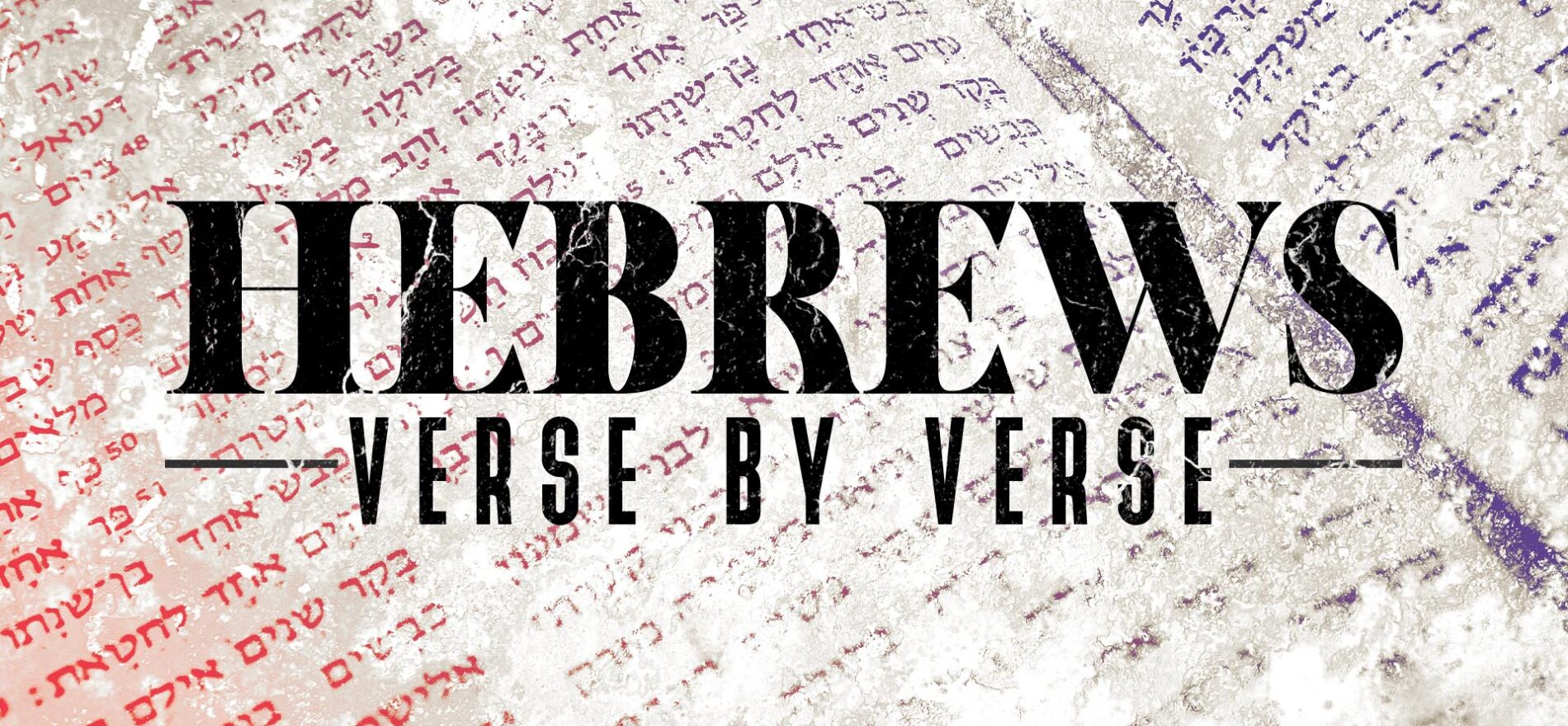Have you ever been in someone’s will for an inheritance? Do you have a distant, wealthy uncle with no children who has put you in his will? Do you secretly wonder when he’ll pass on so you can have your inheritance?
I know. That’s not very Christian to say out loud. But you thought it first… I just verbalized it for you.
All jest aside, the thing about wills is that before they can be executed, the one who wrote it has to die. Legally, the actions prescribed in the will are only effective upon the author’s death. The author of Hebrews employed the analogy of a will to highlight the necessity of Christ’s death to enact the new covenant and render the old one useless.
Christ’s Mediation
15 Therefore he is the mediator of a new covenant, so that those who are called may receive the promised eternal inheritance, since a death has occurred that redeems them from the transgressions committed under the first covenant.
– Hebrews 9:15 (ESV)
I’m not going to redo Christ’s mediation in this article. If you need a refresher, start here. I am, though, singling out this verse because it highlights the outcome of His mediation. Along the way, we have discussed how He prays for His believing family. In Hebrews 7:25, the author said Christ saves us to the uttermost through His intercession. Here, the author said something equally extraordinary. The outcome of Christ’s mediation is that those who are called may receive the promised eternal inheritance.
Stop.
I need to be honest about something. When I began this journey through Hebrews, I expected some pushback against the doctrine of eternal security. I have grown up in churches that believe once a person is born again, they can never lose or walk away from their salvation. This is pejoratively called once saved, always saved theology. I say pejoratively because the phrase is sometimes thought to defend the idea that someone can pray a sinner’s prayer and profess belief but never truly experience a transformed life. Uncle John is an alcoholic and mean-spirited, but he prayed a prayer to ask Jesus into his heart when he was twelve, so… once saved, always saved.
Folks, that’s not what the Bible teaches. I prefer saying once saved, always repenting. That’s a more Biblical expression of the truth. However, I can’t give that a complete treatment right now. My point for now is that my friends and family who are inclined to disagree with once saved, always saved frequently cite verses from Hebrews to poke holes in that belief; hence, I expected pushback on the doctrine of eternal security. Full disclosure: I wanted pushback. I’ve wanted a credible, explainable, biblical reason for the belief that a path exists to “lose” salvation. I didn’t want this because I hoped it was true; rather, I wanted a reasoned explanation for why so many people I love and respect embrace that theological position.
The opposite has happened. Not only has Hebrews not pushed back, it has reinforced my belief in eternal security. Now more than ever, I find the belief that salvation can be lost or forfeited unbiblical. Yet another reason is here in this verse. Christ’s mediation ensures that those who are called receive the promised eternal inheritance. If someone can forfeit or lose the promised eternal inheritance, that creates room to say that Christ’s mediation was somehow insufficient, which I find utterly untenable. But, as airtight as this seems, it’s not the end of the discussion. Another matter must be cleared up.
Who Are The Called?
As soon as I reached this conclusion, another passage came to mind which seemed to throw a monkey wrench into everything. The parable of the wedding feast (Matthew 22:1-14) ends with a prickly verse.
14 For many are called, but few are chosen.
– Matthew 22:14 (ESV)
This verse gives rise to the idea of a general call and an effective call. The general call is the belief that all people are invited to the kingdom of God. That’s the picture portrayed in this parable. The effective call is the belief that only those whom the LORD predestined to believe will respond to the invitation of the general call. (One day, I’ll write something on predestination, but not this day.) For our purposes, we need to figure out if the word called here in this parable is the same word that the author of Hebrews used in his message.
It is not.
Matthew used the Greek word kletos, which means invited. The author of Hebrews used the Greek word kaleo, which means to call by name. That rings a bell.
1 But now thus says the LORD,
he who created you, O Jacob,
he who formed you, O Israel:
“Fear not, for I have redeemed you;
I have called you by name, you are mine.”
– Isaiah 43:1 (ESV)
The author of Hebrews used a word that’s more targeted than a general call to all peoples. He referred to those whom the LORD had called by name. In this case, the called are those whom the LORD knows and ransomed and called by name. These are they for whom He prays. These are they for whom His prayers secure the promised eternal inheritance.
What more do we need to hear? Once you belong to Jesus, nothing will separate you from His love. He so completely transforms you that no mountain, no famine, no sword, no valley, no anything will undo what He did. You may stumble and fall many times, but He’s always there to receive you again. You may get hurt by others in ways that cast large shadows of doubt on your belief, but you’ll never walk away. This is precisely why the apostle John could say that those who went out from us never belonged to us (1 John 2:19). If you can walk away from Jesus Christ, you never really knew Him. He’s that good!! We don’t stay with Him because of good rhetoric and firm doctrinal conviction. We stay with Him because we understand that no one else gives us the Word of Life (John 6:68)!
However, in the most ultimate sense, we remain with Him because He prays for us, and His prayers are effective.
Death of the Author
15 Therefore he is the mediator of a new covenant, so that those who are called may receive the promised eternal inheritance, since a death has occurred that redeems them from the transgressions committed under the first covenant. 16 For where a will is involved, the death of the one who made it must be established. 17 For a will takes effect only at death, since it is not in force as long as the one who made it is alive.
-Hebrews 9:15-17 (ESV)
A death has occurred. Christ died a death that redeems us from the transgressions that the first covenant established. But that death did something else. Verses 16-17 explain that His death enacted a will. This is the only time in the New Testament where a biblical author uses this imagery. This imagery helps explain a few things. First, it helps us understand another facet of why Christ had to die. The new covenant is likened to a will that needed a death to enable its execution. Without His death, there would be no enactment. Covenants required the shedding of blood, and the new covenant is no different. It’s why Jesus told his disciples that the new covenant was in His blood (Luke 22:20).
Second, it demonstrates the ineffectiveness of the old covenant. Sinai’s covenant would never secure the enactment of this will because the author had not died. There was indeed blood, but it was the blood of animals that required renewal on a regular basis. They provided purification for things and people but never secured the promised inheritance. This is spelled out in the next few verses.
18 Therefore not even the first covenant was inaugurated without blood. 19 For when every commandment of the law had been declared by Moses to all the people, he took the blood of calves and goats, with water and scarlet wool and hyssop, and sprinkled both the book itself and all the people, 20 saying, “This is the blood of the covenant that God commanded for you.” 21 And in the same way he sprinkled with the blood both the tent and all the vessels used in worship. 22 Indeed, under the law almost everything is purified with blood, and without the shedding of blood there is no forgiveness of sins.
– Hebrews 9:18-22 (ESV)
Perhaps the only other place in the Bible where we may get a picture of this is in the book of Revelation. The verbiage of a will was not used, but John’s description of the scroll with seven seals parallels closely with the idea. Revelation 5:1 depicts a scene where a document is in the hands of the Father (the one seated on the throne), and the only one worthy of opening it is the Lamb who was slain (Revelation 5:5). Many have called that scroll a title deed which contained the Lamb’s inheritance rites to the earth. He is the only one worthy to open it because He died. The parallel is obvious. If the will in Hebrews is the execution of a new covenant that includes the promised eternal inheritance, then what happens in Revelation chapters 5, 6, and 7 is the execution of that will.
Once for All
23 Thus it was necessary for the copies of the heavenly things to be purified with these rites, but the heavenly things themselves with better sacrifices than these. 24 For Christ has entered, not into holy places made with hands, which are copies of the true things, but into heaven itself, now to appear in the presence of God on our behalf. 25 Nor was it to offer himself repeatedly, as the high priest enters the holy places every year with blood not his own, 26 for then he would have had to suffer repeatedly since the foundation of the world. But as it is, he has appeared once for all at the end of the ages to put away sin by the sacrifice of himself. 27 And just as it is appointed for man to die once, and after that comes judgment, 28 so Christ, having been offered once to bear the sins of many, will appear a second time, not to deal with sin but to save those who are eagerly waiting for him.
– Hebrews 9:23-28 (ESV)
The author made a turn here toward completing his thoughts on Christ’s priesthood and mediation. Chapter ten will finish the discussion, so I’m trying not to steal too much thunder from that chapter. There’s an interesting statement in verse 23. A contrast is made between what was necessary to purify the copies of heavenly things versus the actual heavenly things. It raises a question. Why did the heavenly things need purification? The statement that the heavenly things needed better sacrifices implies that they, too, had to be purified. If you’re like me, you were raised with this unquestionable assumption that everything in heaven is perfect. But actually, the biblical authors never used that word to describe heaven. It’s fair to say that God is described as perfect (Matthew 5:48), but heaven is never said to be such. In fact, the Bible says quite the opposite.
15 Behold, God puts no trust in his holy ones,
and the heavens are not pure in his sight;
– Job 15:15 (ESV)
Huh?
This is not some tangent. It goes somewhere, and it’s all connected. Question. Where did rebellion against the LORD first begin? In heaven.
12 “How you are fallen from heaven,
O Day Star, son of Dawn!
How you are cut down to the ground,
you who laid the nations low!
13 You said in your heart,
‘I will ascend to heaven;
above the stars of God
I will set my throne on high;
I will sit on the mount of assembly
in the far reaches of the north;
14 I will ascend above the heights of the clouds;
I will make myself like the Most High.’
15 But you are brought down to Sheol,
to the far reaches of the pit.
– Isaiah 14:12-15 (ESV)
If rebellion began in heaven, then the heavens are not pure in His sight. The Bible teaches that Christ’s redemption has a cosmic scale. His death did more than offer forgiveness to humans. It provided redemption for all of creation – including heaven itself. Look at it like this. Christ’s resurrection is a guarantee of a resurrection for everyone who believes. But it goes further.
19 For the creation waits with eager longing for the revealing of the sons of God.20 For the creation was subjected to futility, not willingly, but because of him who subjected it, in hope 21 that the creation itself will be set free from its bondage to corruption and obtain the freedom of the glory of the children of God.
– Romans 8:19-21 (ESV)
We have been unintentionally trained to think of creation as the earth and all we can see. But it also includes the unseen. The unseen spirit realm is also a creation of the LORD. When Paul wrote that creation itself will be set free, that includes both heaven and earth. How can I say that? Because in the end, just as we receive new bodies in our final redemption, the heavens and earth get new bodies of a sort in their recreation (Revelation 21:1). So when the author declared that Christ appeared once for all it has a cosmic scope. He came first to offer sacrifice for sin, and He’ll come again to complete redemption for those who eagerly await Him. According to Romans, that includes creation itself!
Only Once
As I close this, let’s draw our attention back to the author’s intent for his hearers/readers. These men and women who desired to go back to the old covenant system of priests and sacrifices needed to hear this loud and clear. Christ died once for all. There is no longer a need for the sacrifices of bulls and goats, so the whole system is rendered obsolete. You and I may not be tempted to return to the Sinai covenant, but we are likewise tempted to add to Christ’s sacrifice with our own. The variety of extra sacrifices is as numerous as the different kinds of people within the church. We all feel this innate desire to bring something to the table. For what reason? That’s the appropriate question.
There are appropriate desires to pursue God, please God, and give yourself to serving God. That’s expected and healthy. However, if at any time, any one of those desires to do something becomes about receiving God’s grace, or more of it, then you’re adding sacrifices to what Christ has already done. That’s old covenant territory, and it’s obsolete. Imagine this. You walk into a large, unlit room. Apart from the windows, there’s no additional light. You notice there are several lights hanging from the ceiling, but there aren’t any light switches. You only see chains hanging from each fixture. There are no ladders, but you figure out how to stack chairs so you can barely reach the chains. As you stack and restack for each light, you discover none of the chains do anything. As you’re climbing down from the last light, another guy walks in the room and says, “Google, turn on the lights.” Not only did all that hard work you did not turn on a single light, it was the wrong way to go about it in the first place.
Christ died once for all and rendered every other sacrifice not just unnecessary but completely useless. We’ll look deeper into this in chapter ten, but the conversation began here at the end of chapter nine. In chapter ten, we’ll conclude the author’s discussion about Christ’s priesthood. Be thinking about a few things as we near this conclusion.
- Think through how we Gentile believers fall into similar traps to these Jewish believers.
- Think about how Christ’s once-for-all sacrifice is related to us becoming a living sacrifice who dies every day.
- Consider how His mediation guarantees that we will inherit the promised eternal inheritance.
There will be only one more post dealing with Christ’s role as high priest. I’m looking forward to it, and I’m looking forward to moving on as well. See you then.







